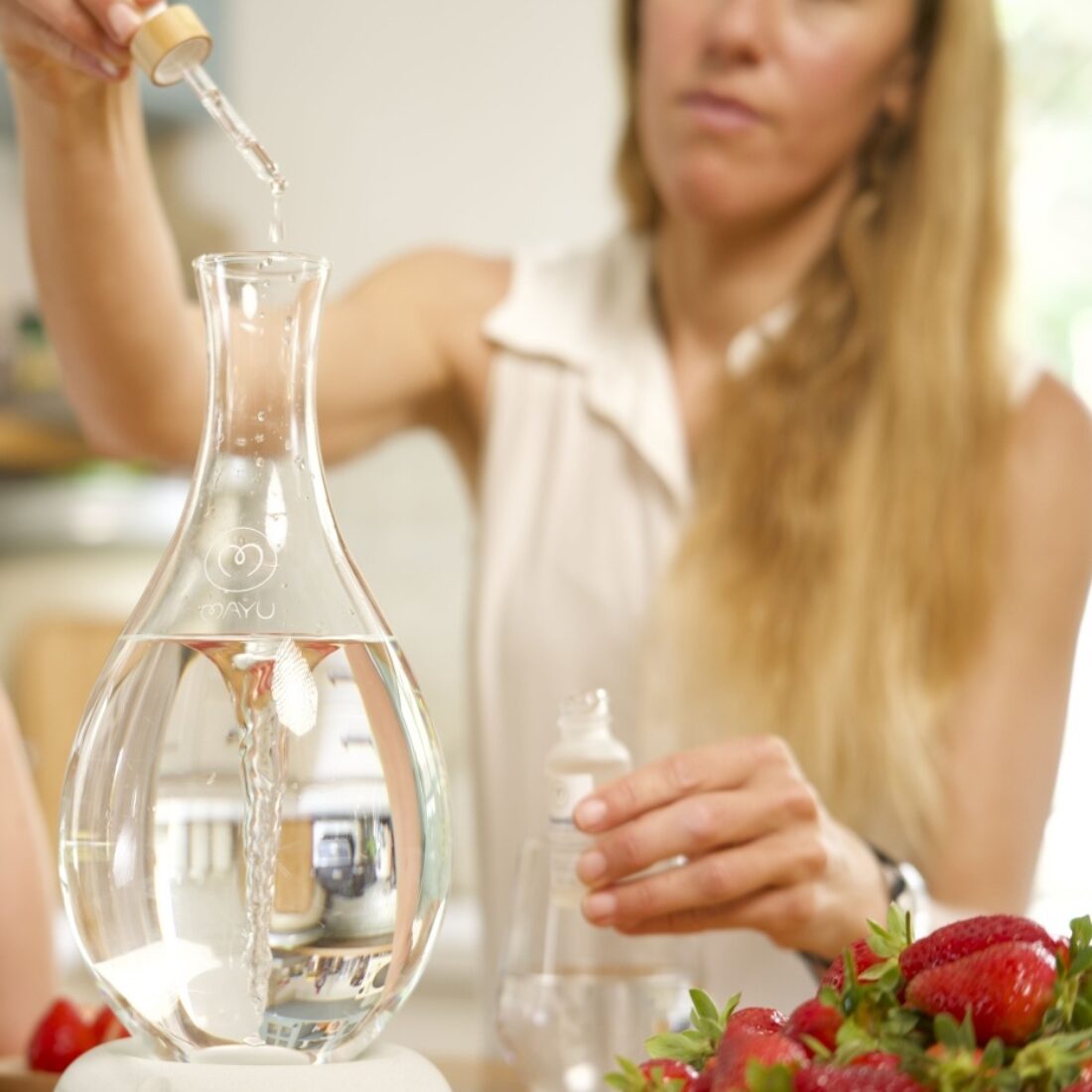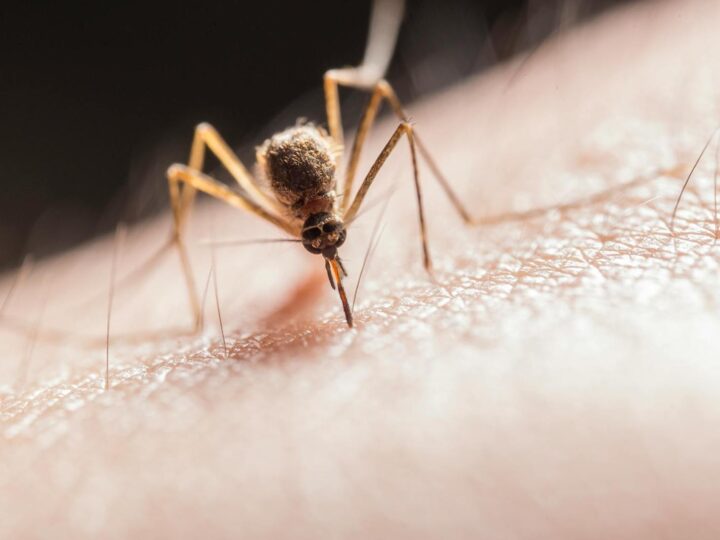Seth Siegel’s bestselling book Let There Be Water describes how Israel transformed itself from a water-starved nation with frequent droughts into a country with enough water surplus to export to neighbors, landlocked Jordan in particular.
A big part of Israel’s water miracle has been desalination, which removes salt from seawater to make it drinkable. But the soggy elephant in the room is that desalinated water is missing all of the essential minerals for proper human nutrition that are present in spring, lake and well water.
“When the first local research studies about what desalinated water does for health came out, we discovered that people were dying in Israel because the water they’re drinking has no minerals,” Elad Erdan tells ISRAEL21c.
The study used data from one of Israel’s HMOs and compared health outcomes from six years before and six years after the advent of desalination. “We were able to see the difference in the number of strokes and heart attacks.”
It’s not just a problem for Israel. “Desalination is a process that’s accelerating all over the world,” Erdan points out. Globally, more than 300 million people now get their water from desalination plants, according to the International Desalination Association.
Erdan is CEO of Mayu, an Israeli startup based in Emek Hefer, near Hadera, that is dedicated to “fixing water.”
The cleanest example of what Mayu is proposing is the addition of minerals to existing water. The company already has formulations to boost the immune system and add electrolytes, important for runners (like Erdan).
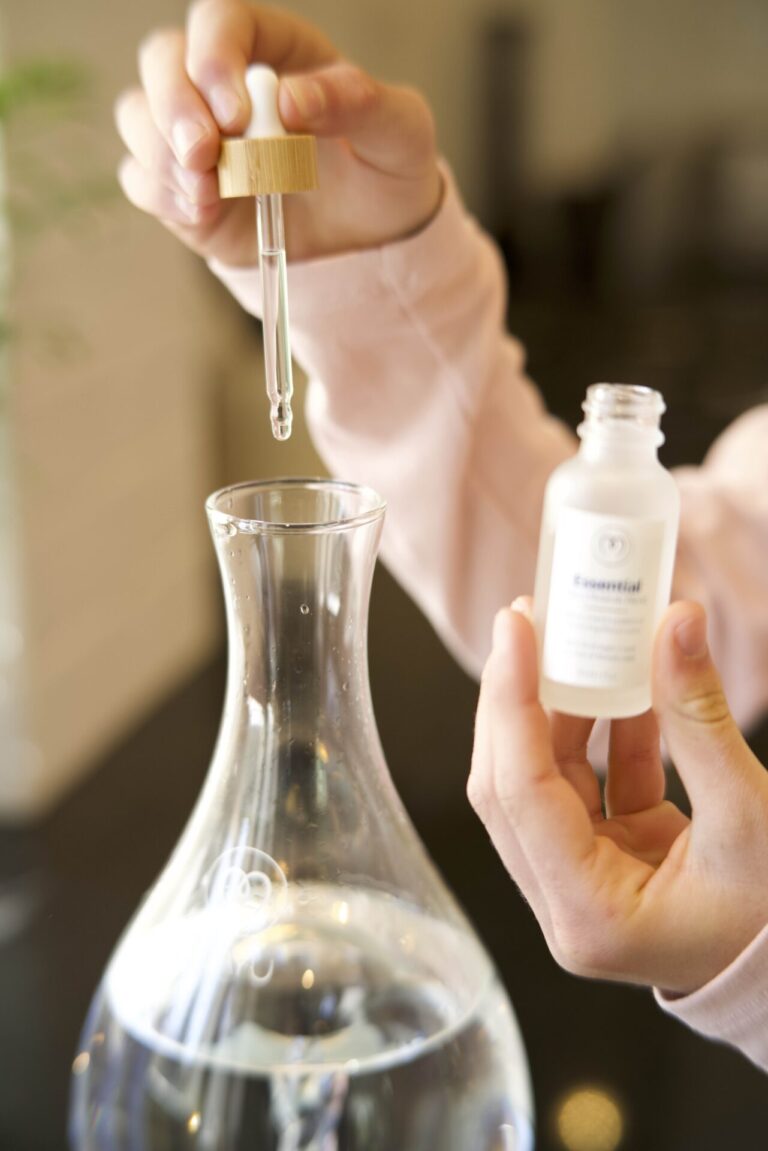
But that’s just one piece of the puzzle.
Mayu’s water filtration devices handle three important steps: purification, where the water is filtered; aeration, where the oxygen levels in the water are balanced; and mineralization, which involves “micro-dosing” minerals into your daily drink.
“Our vision is to make sure we can gift the world with healthy and sustainable water, accessible to anyone, anywhere,” Erdan explains.
The Swirl
The company’s first product, for sale on the company’s website and at Amazon, seems deceptively simple. It looks like a large flask or pitcher.
But at the bottom of the glass is a metal connector attached to a porcelain base, handmade by Mayu cofounder Shay Eden. When switched on, the flask and the connector create a “vortex” – a mini-tornado in the center of the water. This aerating action gives the product its name, the Mayu Swirl.
You’re most likely familiar with the molecular structure of water – two molecules of hydrogen and one of oxygen. But, says Erdan, when water flows in the wild, extra oxygen is introduced. If you were to drink from a natural spring in Jerusalem, the water would be loaded with oxygen.
Ze’ev Zohar, Mayu’s chief technology officer and cofounder, shared with ISRAEL21c the example of a fish tank. The bubbles you see in the water are oxygen and it’s what the fish breathe. If there are no bubbles, the fish die.
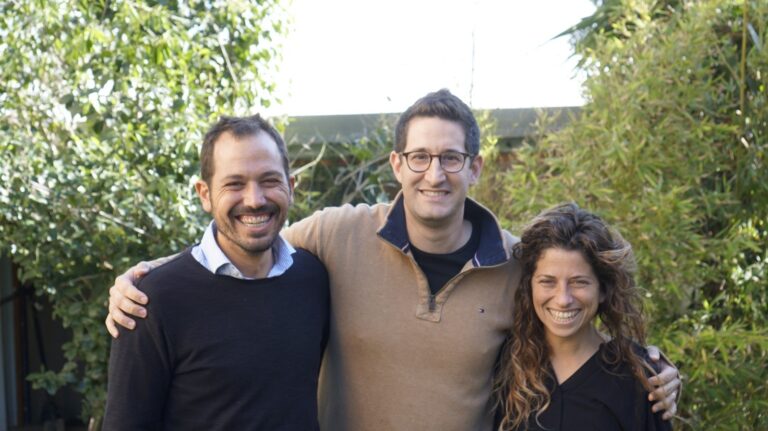
Erdan encourages us to think about where water comes from and how it’s used.
“All the water we have on Earth is the same that’s been here since creation. It’s just being recycled. The sun evaporates the water in the ocean, and when the clouds get heavy and it starts to rain, each drop swirls upon its descent, mixing oxygen with the H20.”
Personalized water
It’s not just the aeration that’s important for water health.
“When water passes underground through rocks and soil it encounters on the way, it picks up different minerals,” Erdan says. “That’s why the water in Fiji tastes different than the water in Yosemite National Park.”
Reverse osmosis devices have long been considered the gold standard of water purification. But they’re not much better than desalination. Yes, they filter out 95% of the bad stuff in the water, but also all the good stuff – any zinc, magnesium, iodine or minerals you want to drink. They also waste a lot of water.
When you pour water into the Mayu Swirl device and add the desired minerals, you are getting “personalized water.”
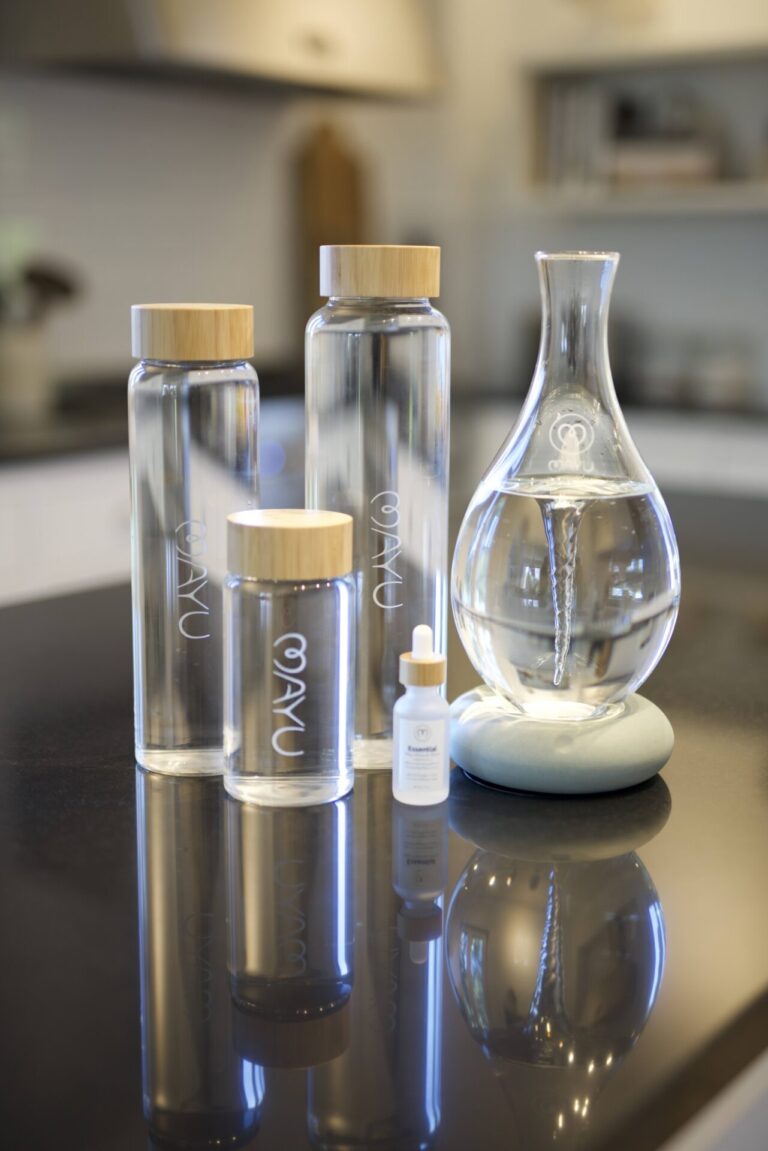
The Swirl was not supposed to be Mayu’s first product. The bigger prize is the tentatively titled Mayu 2, a countertop water purifier. The water will enter the machine automatically, where it will be subjected to the same kind of vortex as in the Swirl.
Unlike the Swirl, where the user must add the minerals manually, the Mayu 2 will have up to six buttons – press one and get the exact blended water mix you desire.
The decision to launch the Swirl first was a result of the Covid-19 pandemic. Consumers were stuck at home and desired clean, safe water.
“We were looking for a minimum viable product,” Erdan says. “The Swirl was a pilot to say, ‘Hey, we’re Mayu, we have a cool vortex and the best quality water in the world, come and learn more.’”
The Swirl has been a runaway success in just a short time. “We already have more than 30,000 customers in 70 countries, from Abu Dhabi to isolated islands in the Philippines,” Erdan notes. Some 88% of sales are in the United States.
With either Swirl or Mayu 2, it only takes five to seven minutes to reach 80% of the oxygen level in natural water. Forty minutes gets you to 100%.
74 billion water bottles
And in case you haven’t read between the lines, having a Mayu Swirl or a Mayu 2 at home cuts down on the purchase of plastic bottles of spring water, so it’s good for your personal health as well as the health of the environment.
Americans buy 74 billion water bottles a year. One in three Americans say they’ve stopped drinking tap water entirely.
Mayu is progressing along two sales channel lines: direct-to-consumer, as with the Swirl, and a business-to-business-to-consumer (B2B2C) model where the Mayu 2 would be installed in schools, dorm rooms, hotels, gyms and offices.
Erdan would like to see Mayu all over Africa, as well, where many people don’t have access to fresh drinking water. It can also help clean up water in the United States which often flows through pipelines that, on average, are over 75 years old.
“Water utilities in the US are required by regulations to search for about 100 different contaminants in the water,” Erdan notes. “But in reality, there are more than 80,000 chemicals!”
Those include everything from asbestos (from old pipes), agricultural run-off, industrial waste and pharmaceuticals. “Even if the water is clean at the source where it’s processed, it won’t be by the time it reaches your tap,” Eden points out.
Master distiller
Mayu got its start in 2018 when Eden, Zohar’s business partner, was pregnant with her third child. Eden is super health conscious, but when it came to where to find the healthiest water for her children, she was stumped.
“I never thought about water until my daughter was born. I can make healthy food fun, but it always ends at water,” she says.
Zohar and Eden searched for healthier, oxygen-rich water replete with minerals. They visited dozens of natural springs around the world but came up emptyhanded. Mayu was their answer. Erdan joined a year later as CEO. The small five-person company has raised around $3 million.
While all five staff members are key to the company’s success, Eden has her own superpower.
“She’s a master distiller,” Erdan tells ISRAEL21c. “We can put in all the same minerals, but maybe the magnesium is from a different source. She can tell the difference. She’s our quality control.”
As far as competition, there’s little to none.
“Most of the other companies trying to mineralize water do it by providing a tube with rocks inside into which the water flows. But that doesn’t make sense,” Erdan says. “In nature, this can take a decade, not a few minutes.”
Companies such as Aqua tru and Berkey Filters in the US and Mitte in Germany, don’t provide an “app store”-like environment for mineral blends, vitamins and premium products like Mayu aims to do.
You can buy a Mayu Swirl for $180 plus $15 for minerals (enough for 60 liters of water). The Mayu 2 will be out in another year’s time. The company is already talking with “some very known and promising partners” in the hospitality space.
Get your swirl on here.




